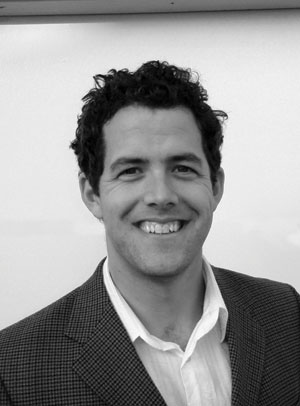Avoiding the Knowledge Bottleneck




January 1, 1970
BY Tim Portz
Danny Kluthe may be the most knowledgeable person alive when it comes to the day-to-day details of operating an anaerobic digester on a hog farm. Kluthe is not a microbiologist, however, and he didn't design the digester on his farm, nor did he design the internal combustion engine that turns his biogas into electricity. Still Kluthe's digester works because of his knowledge. He understands how best to deploy this method of manure management and clean energy generation into his farm operation. Kluthe learned how often he needs to feed his digester, how to troubleshoot low biogas production, and how to deliver a consistent manure stream to his digester. All of this knowledge is crucial, specific and, for the most part, the domain of Kluthe alone.
Ultimately, if biogas production from animal waste is to become a widespread method of manure management and clean energy production, Kluthe's knowledge has to be shared with other people-many other people.
This reality confronts each and every developing biomass industry. Before biomass gasification, algal cultivation, fermentation of crop residues and every other biomass industry can be scaled up, a means for educating a skilled pool of labor must be imagined, created and deployed.
Fortunately, provisions for meeting this need are being included in the draft language of the American Clean Energy and Security Act of 2009. If this language is adopted, the U.S. secretaries of education and labor will be authorized to award monies to community colleges and universities to develop training programs to benefit these new industries. It is also incumbent on us in the biomass industry to be proactive and engage our educational institutions as we develop and scale these new industries.
I think one of the biggest challenges facing this industry and its educational partners will be synchronizing the pace of industry expansion with the growth of job training programs.
A chicken and egg scenario begins to unfold as educational institutions are reluctant to create programming for industries which haven't yet been commercialized and, at the same time, developing industries will struggle if skilled workers aren't available to fuel the expansion.
How then do we align ourselves as an industry with potential educational partners? Working relationships with educational institutions need to be included in business plans, on steering committees and on boards of directors. Through strategic relationships, the knowledge so unique to the Danny Kluthes of the world stands the greatest chance of finding its way to a workforce that the biomass industry will ultimately need.
Tim Portz is a business developer with BBI International's Community Initiative to Improve Energy Sustainability. Reach him at tportz@bbiinternational.com or (651) 398-9154.
Ultimately, if biogas production from animal waste is to become a widespread method of manure management and clean energy production, Kluthe's knowledge has to be shared with other people-many other people.
This reality confronts each and every developing biomass industry. Before biomass gasification, algal cultivation, fermentation of crop residues and every other biomass industry can be scaled up, a means for educating a skilled pool of labor must be imagined, created and deployed.
Fortunately, provisions for meeting this need are being included in the draft language of the American Clean Energy and Security Act of 2009. If this language is adopted, the U.S. secretaries of education and labor will be authorized to award monies to community colleges and universities to develop training programs to benefit these new industries. It is also incumbent on us in the biomass industry to be proactive and engage our educational institutions as we develop and scale these new industries.
I think one of the biggest challenges facing this industry and its educational partners will be synchronizing the pace of industry expansion with the growth of job training programs.
A chicken and egg scenario begins to unfold as educational institutions are reluctant to create programming for industries which haven't yet been commercialized and, at the same time, developing industries will struggle if skilled workers aren't available to fuel the expansion.
How then do we align ourselves as an industry with potential educational partners? Working relationships with educational institutions need to be included in business plans, on steering committees and on boards of directors. Through strategic relationships, the knowledge so unique to the Danny Kluthes of the world stands the greatest chance of finding its way to a workforce that the biomass industry will ultimately need.
Tim Portz is a business developer with BBI International's Community Initiative to Improve Energy Sustainability. Reach him at tportz@bbiinternational.com or (651) 398-9154.
Advertisement
Advertisement
Upcoming Events





